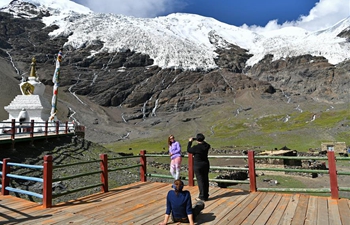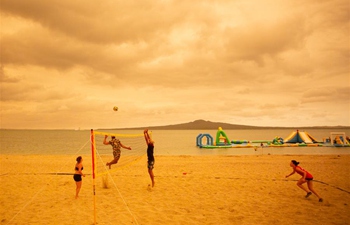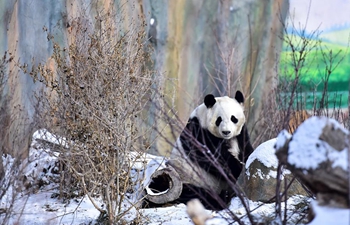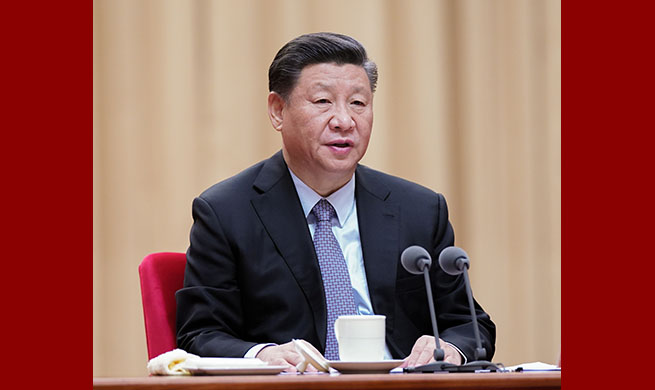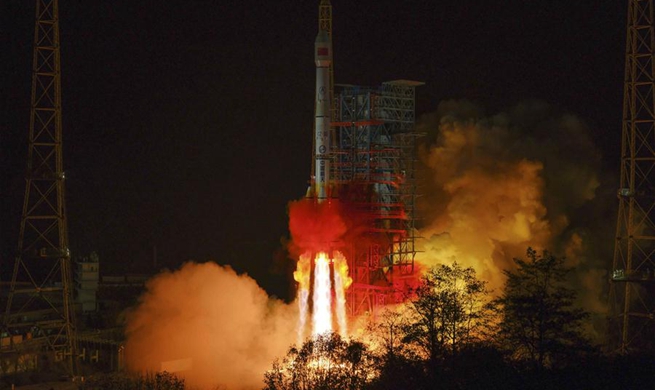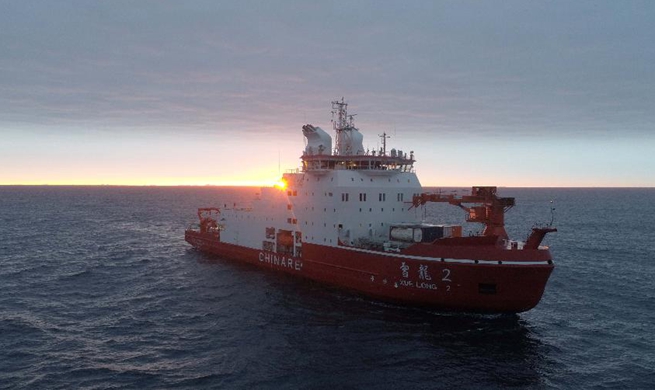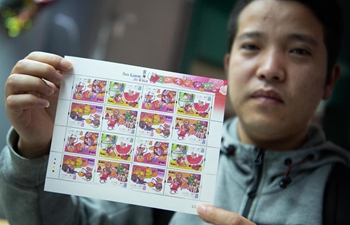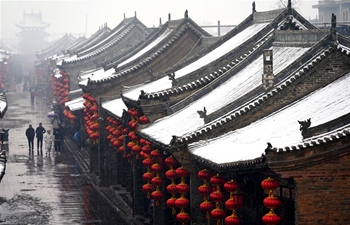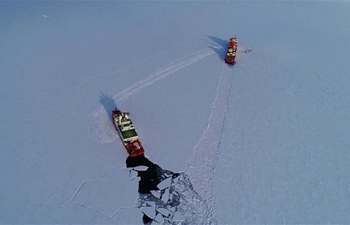ISTANBUL, Jan. 8 (Xinhua) -- Turkey and Russia have clashing interests but are also bound by shared benefits, pushing the two countries to compromise their differences during Russian President Vladimir Putin's visit to Istanbul on Wednesday, experts said.
The official reason for the visit, which comes at a time of heightened tensions since the U.S attack that killed a top Iranian commander last week and Teheran's missile response hours earlier, was the launch of the TurkStream project, a pipeline through the Black Sea from Russia to Turkey that is to deliver Russian natural gas to Europe.
Following bilateral talks reportedly focused on Syria, Libya and regional crisis, Putin praised in a speech the "strategic partnership" between the two countries, indicating that their bilateral cooperation will not be affected by regional divergences.
"Russian-Turkish cooperation is developing in all fields," he noted, adding TurkStream will further cement this partnership.
"We didn't allow diverging opinions with Russia to get into the way of our partnership and common interests," Turkish President Recep Tayyip Erdogan said.
"I am convinced that our companionship will continue with determination," he added, implying that dialogue will prevail over disagreement between Turkey and Russia.
"Despite the fact that Turkey and Russia have an important number of differences, both countries would not want a clash of any kind. It is simply not in their interests," Togrul Ismayil, an expert on Russian affairs from Kahramanmaras University, told Xinhua.
"Russia and Turkey need each other and U.S. policies in the Middle East are drawing the two nations which don't want to step on each other's feet toward each other," he argued.
Irritated by Russia's growing influence over energy security in Europe, Washington has imposed sanctions on companies in the TurkStream project.
Russia is also involved in another massive energy project in Turkey, Akkuyu nuclear power plant, which is set to become operational later this year.
Russia and Turkey have developed a close relationship despite diverging policies in Syria, a development that has seen NATO member Turkey buy a Russian S-400 missile defense system which angers its Western allies.
Moscow and Ankara have also a new challenge: Libya. They are backing opposing forces in the North African nation, with Russia supporting Khalifa Haftar's Libyan National Army and Turkey supporting militarily Prime Minister Fayez al-Sarraj's internationally recognized Government of National Accord (GNA).
Turkey has started to send troops to Tripoli under a newly-signed bilateral security cooperation agreement with the UN-backed Libyan government.
Turkey has key interests that largely depend on the survival of Sarraj's government. Ankara signed a maritime deal with oil-rich Libya that serves the energy interest of both countries and strengthens Turkey's hand in Eastern Mediterranean against rivals such as Greece, Cyprus, Egypt and Israel.
Russia and Turkey reached an understanding in November to share control of a land strip in northern Syria, where Turkey launched a month prior a cross-border operation, a move that prompted analysts to believe such a formula could be repeated for the Libyan crisis.
Both Turkey and Russia regard the oil-rich country as strategically important to project their influences. Ankara, however, doesn't want to engage in a proxy war with Russia in a far-away country with limited military capacities.
"It is highly unlikely that a direct confrontation will happen in Libya between Turks and Russians," argued Ismayil, who believes that Ankara and Moscow will find a common ground in order not to be involved in such a dreaded scenario.
Besides, "Turkey is the gateway for Europe and the world for a geopolitically boxed Russia," thus prompting Moscow to seek some form of compromise with Ankara, he said.
Meanwhile, Turkey and Russia on Wednesday called warring parties in Libya to reach a cease-fire by midnight of Jan. 12.
Turkish Foreign Minister Mevlut Cavusoglu, speaking alongside his Russian counterpart Sergei Lavrov's in Istanbul, said he hopes the cease-fire will embolden the Berlin process seeking to resolve the conflict.
The call was hailed as positive by Turkish experts who considered it a new sign that Russia and Turkey could cooperate in Libya too after Syria.
"Turkey and Russia should work together so as not to compete with each other in this country," Serkan Demirtas, a political analyst, told Xinhua.
"A fresh cycle of violence will be to the disadvantage of both Turkey and Russia, with impacts on the Syrian and Iraqi theaters," he argued.
"Russia and Turkey are both aware that their cooperation on regional matters are to their benefit and are acting accordingly," a Turkish diplomatic source told Xinhua.
"We may have different approaches to matters but our communication channels are open," she said on the condition of anonymity.




